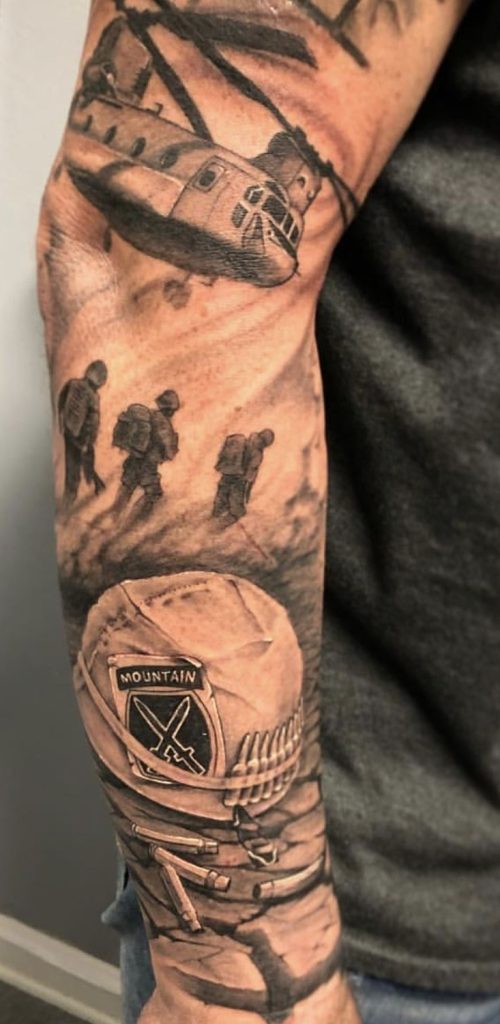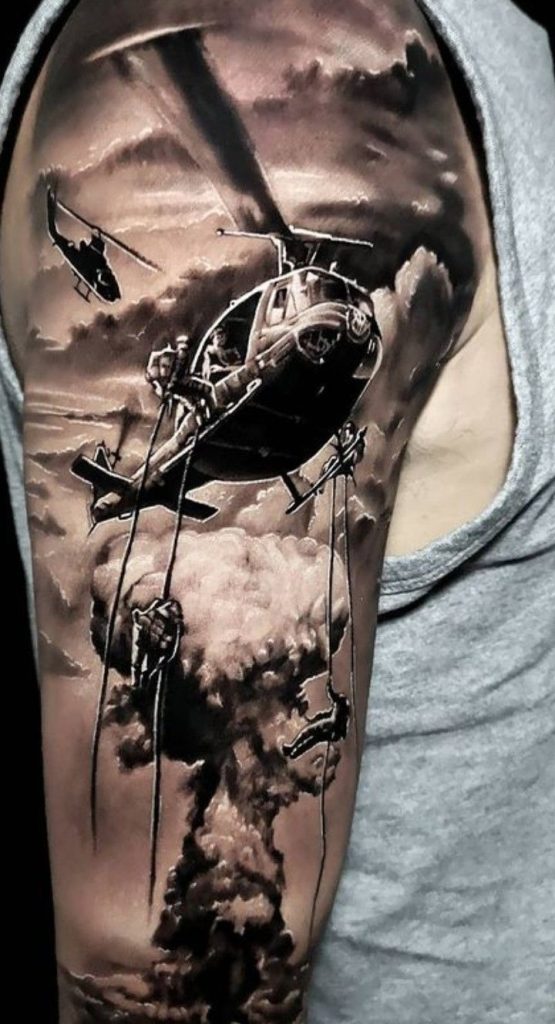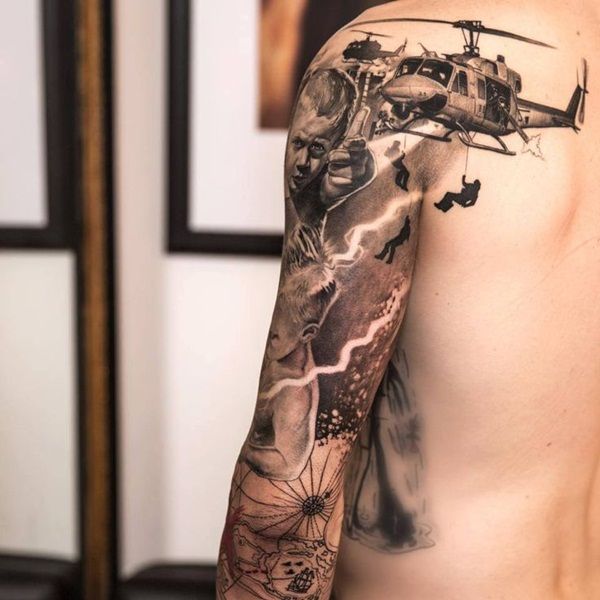
The ethical considerations surrounding military tattoos involve addressing the cultural, personal, and societal implications of tattooing within the context of military service. These considerations are important for both tattoo artists and service members to ensure that tattoos are approached with respect and sensitivity.
Military Tattoos Cultural

One key ethical consideration is the cultural significance of military tattoos. Tattoos that incorporate symbols or emblems from different cultures or historical contexts must be handled with care to avoid misappropriation or disrespect. Service members and tattoo artists should be mindful of the origins and meanings of these symbols to ensure they are used appropriately and respectfully.
Read More: The Safety Concerns of Getting a Tattoo While Pregnant
Another important aspect is the impact of military tattoos on personal and professional life. While tattoos can be a source of pride and personal expression, they may also influence how individuals are perceived by others. Service members should consider the potential implications of their tattoos on their career prospects and relationships, particularly if they plan to transition to civilian roles.

Tattoo artists also have a role in ethical considerations by providing guidance and ensuring that clients make informed decisions. This includes discussing the potential risks and benefits of getting a tattoo, as well as addressing any concerns the client may have. Artists should strive to create designs that are meaningful and respectful, avoiding any imagery that could be offensive or inappropriate.

Overall, ethical considerations in military tattoos involve respecting cultural significance, understanding personal implications, and providing responsible guidance. By addressing these factors, both service members and tattoo artists can ensure that military tattoos are approached with thoughtfulness and integrity.